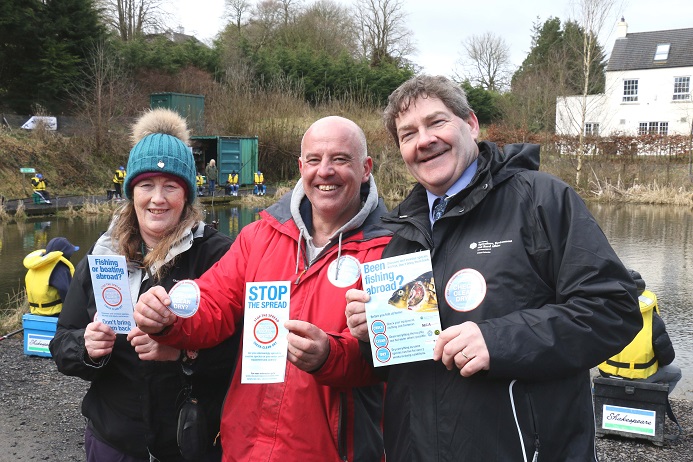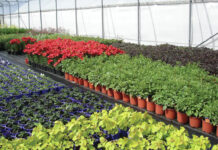

Alien, invasive species or pests – call them what you like but plants and animals that are not a natural part of our ecosystems have the potential to cause harm to our environment, economy and even human health.
While most anglers are vigilant about the risk of spreading non-native species and diseases, there is a real risk that those that aren’t could accidentally spread these organisms, harming the environment and potentially damaging the reputation of the sport and the fish stocks they rely on.
To help tackle the problem, a group of young anglers is getting the latest biosecurity advice on how to look after their equipment and clothing to help reduce the spread of such non-native species.
“Invasive species pose a growing threat to our environment, economy and human health. Once established, they are extremely difficult and costly to control and eradicate, and their ecological effects are often irreversible, second only to damage caused by habitat destruction,” explained Rose Muir from the Northern Ireland Environment Agency’s Alien Invasive Species Team.
“They can also adversely impact on recreational activities such as walking, boating, fishing, swimming and various other water-based leisure pursuits. We are working with a group of young anglers to teach them at an early age about the importance of good biosecurity to help minimise the risks as well as increasing awareness and understanding.”
Various types of recreational water users have been identified as being at a high risk of inadvertently introducing or spreading invasive aquatic plants and invertebrates which can hitch-hike on their equipment or clothes.
Seamus Connor from DAERA Inland Fisheries said: “Our ‘Check, Clean, Dry’ campaign stresses to recreational water users to check their equipment and clothing for living organisms, clean all footwear, equipment, and clothes and dry them before moving to different water.
“Our anglers are often our eyes and ears when it comes to spotting threats and unwanted species and reporting them to us for action. They are also not averse to getting their hands dirty and helping with rapid response clean-up operations.
“Many angling organisations in Northern Ireland are actively managing our waterways to eradicate invasive species.
“Some aquatic invasive species can survive out of water for 16 days and more on damp clothing and equipment. So our message to young anglers or others who enjoy boating, canoeing or other similar activities, remember to check all their equipment.”
This year, for the first time, Invasive Species Week will run throughout the British Irish Council territories, GB & NI, Ireland, Jersey, Guernsey and the Isle of Man from March 23-29. DAERA’s team from Inland Fisheries and NIEA joined the Angling First charity at their Lurgan Road site in Dromore, Co Down, to teach some 30 children the importance of the Check, Clean, Dry campaign.
DAERA Fisheries Officers were also able to hand over permanent ‘Check, Clean, Dry’ signage to highlight the importance of good biosecurity on our lakes and rivers and for the next generation of recreational water users.









